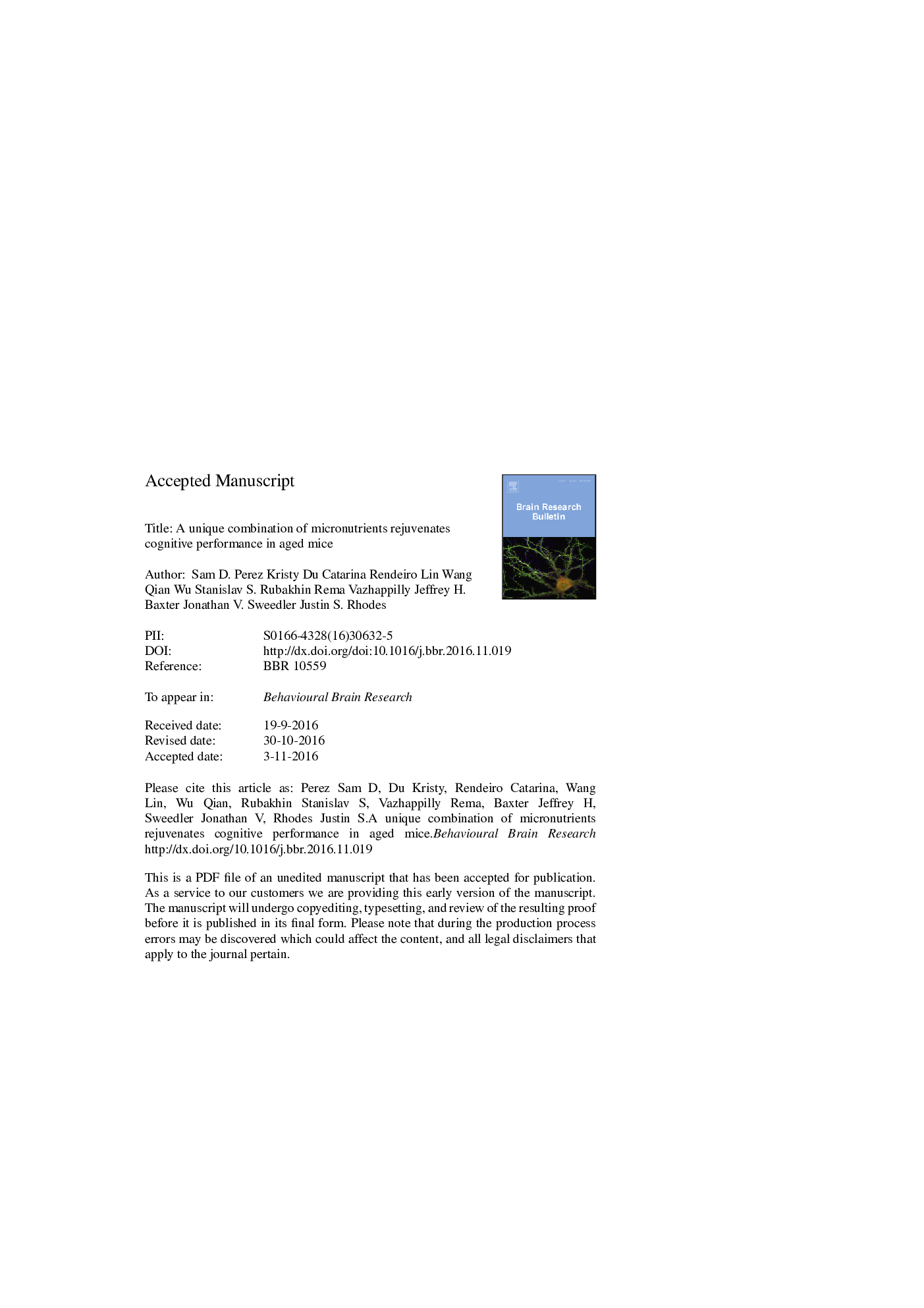| Article ID | Journal | Published Year | Pages | File Type |
|---|---|---|---|---|
| 5735653 | Behavioural Brain Research | 2017 | 45 Pages |
Abstract
It is widely believed that diet can influence the onset and severity of cognitive aging, but the optimal combination of micronutrients and molecular and cellular mechanisms remain elusive. The purpose of this study was to compare the effects of eight distinct diets, consisting of various concentrations of selected micronutrients, on learning and memory as well as markers of neuronal plasticity, and metabolic and neuro-immune status of the aged hippocampus. Eighteen-month-old male and female C57BL/6J mice were fed the diets for 16 weeks, followed by learning and memory trials on the active avoidance task. Number of immature neurons were measured by immunohistochemical detection of doublecortin (DCX+) in the granule layer of the dentate gyrus. Amount of mitochondrial DNA (mtDNA) and gene expression of molecular markers of mitochondrial biogenesis (Ppargc1α, Sirt1, Tfam), and neuroinflammation (IL-10, Alox15, Ptgs2, IL-1β, IL-6 and Tnf) were assessed by quantitative real time polymerase chain reaction (qRT-PCR) of hippocampal samples. Tissue levels of selected micronutrients and a number of metabolites were measured by liquid chromatography-mass spectrometry. The diet supplemented with RRR d-alpha tocopheryl acetate, citicholine, 5-methyltetrahydrofolic acid, quercetin and the n-3 fatty acid phosphatidylserine-docosahexaenoic acid, improved performance on the active avoidance learning and memory task compared to all the other less-complex diets. This diet also increased IL-10 expression and attenuated the age-related change in mtDNA content in the hippocampus without affecting metabolite levels. Results suggest cognitive benefits of wholesome diets are partially mediated through combined antioxidant and anti-inflammatory activities of optimized mixtures of micronutrients.
Related Topics
Life Sciences
Neuroscience
Behavioral Neuroscience
Authors
Sam D. Perez, Kristy Du, Catarina Rendeiro, Lin Wang, Qian Wu, Stanislav S. Rubakhin, Rema Vazhappilly, Jeffrey H. Baxter, Jonathan V. Sweedler, Justin S. Rhodes,
